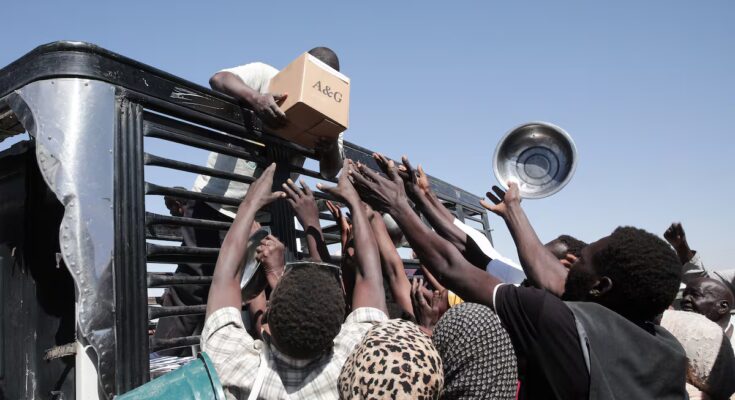The civil war in Sudan, Africa’s third largest country after Algeria and the Democratic Republic of Congo, is causing a human disaster on a scale that is difficult to imagine. Nearly 12 million displaced, according to the United Nations, of which 7.5 million within the country and the rest, almost all distributed in countries almost as poor and conflicted as their own, such as Chad and South Sudan. According to the United Nations, 21 million Sudanese – two in five – suffer from hunger and 375,000 suffer from a “catastrophic” famine.
In the first nine months of 2025 alone, 1.5 million cases of malaria, 120,000 of cholera – and 3,000 deaths, counting only those registered – as well as the lowest vaccination coverage rate in the world. The Sudanese, who do not have a generation that has not experienced war, suffer desperately in the face of a conflict that burns out of control due to the indifference of the great global powers.
Two and a half years have passed since the fragile coexistence between the regular Sudanese army and the Janjaweed militias – renamed Rapid Support Forces or RSF, from its acronym in English – exploded with violence. Since then, both forces have competed for control of the country and its natural resources, with a ferocity fueled by cultural rivalries or simple racism, and with the support, tacit or explicit, of other countries in the region.
The latest horror episode was the capture by the RSF of the city of El Fasher, in the state of North Darfur, in the west of the country, on 26 October. After a siege that lasted more than a year, condemning a quarter of a million people living in the city to starvation and disease, paramilitary forces entered the city to carry out what one analyst called “the most predictable genocide on the planet.” A laboratory at the American University of Yale has estimated the death toll at over 10,000, including at least 460 in a maternal and child hospital, the only one still active in the region.
The physical and cultural distance from Sudan, as well as the lack of reliable information on the ground, prevent the ever fragile global public attention, required daily by a multitude of open conflicts, from focusing as it should on the African country. But the information we have from the United Nations, scant as it may be, is alarming enough to urge the international community to respond urgently. Sudanese people are experiencing several tragedies at once. Let the indifference stop.



